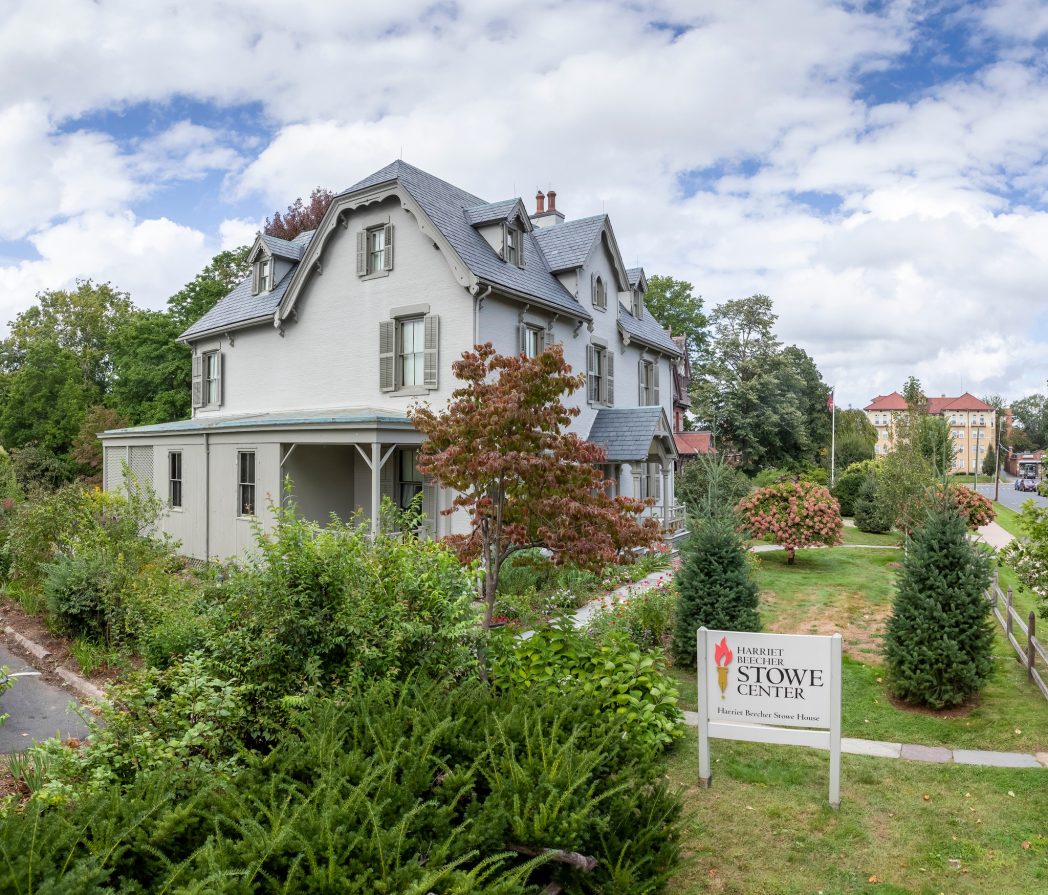


This spooky season, our tours and lectures are unique, in that they delve into the historic, social, and political context of the 19th century and explore the role of spiritualism in the lives of reformers, suffragists, and Black activists.
What is spiritualism?
Broadly speaking, spiritualism is the belief that an individual’s awareness persists after death and can be contacted by the living. During Spirits at Stowe, we discuss the histories of multiple spiritualist traditions in U.S. history, and how these beliefs helped inspire, nourish, and connect politically radical individuals and communities from the mid-19th through the dawn of the 20th centuries—paying special attention to abolitionism, women’s rights, labor rights, and the intersections among them. We also specifically reference the Spiritualist faith, which was prevalent in the 19th and early 20th century and continues today, with various communities active.
Like many people grappling with loss in the post-Civil War era, Harriet Beecher Stowe- a mother who outlived four of her seven children- found solace in the Spiritualist belief that the spirits of the dead moved and communicated freely in the world of the living and embraced Spiritualism even as she affirmed her commitment to mainstream religion. The Spirits at Stowe tours will allow us to consider in greater depth a less-frequently explored part of Harriet’s life such as child mortality and her complex, even fluid, relationship with organized religion, especially her father’s religion. The tour expands on the life of Isabella Beecher Hooker, allowing us to speak with nuance about the variety of social justice approaches, from Isabella’s more radical support of suffrage to Harriet’s more tepid position. The tour and lectures also open up conversations about Spiritualism as a tool of resistance for radicals and reformers, such as enslaved people and Black (and) women activists by affording opportunities to speak the “unspeakable” via communication with “the other side.” The tour also opens conversation about class inasmuch as spiritualism offered vocations that brought people into the parlors of social classes they otherwise would never enter. The transgressing of class boundaries is a social justice issue that comes up more tangentially in our regularly offered tours.
During the tour, the Stowe House is “set” to reflect a Spiritualist setting. It takes place later in the evening and lit by (electric) candlelight. Participants on the tour observe and engage with the materials of Spiritualism including a planchette on view, Isabella’s “Spirit Book” in which she recorded the names of those who she felt she communicated with through Spiritualism, images of Spiritualist books and photography to illustrate the images and words associated with Spiritualism, and quotes about Spiritualism. Tour participants will consider the possibilities, limitations, and contradictions of Spiritualist beliefs.
Join us on October 19, from 4:30 – 6:00 PM, for Conjuring Spirits: a free public event featuring tarot readings and ghost stories for adults as well as child-friendly harvest activities and stories.
Join us on October 26, from 4:30 – 6:00 PM, for Beyond the Veil: A History of Spiritualism. Historian Katie Keckeisen goes beyond tangible aspects of Spiritualism and explores the meanings that Spiritualism had for individuals and society.
